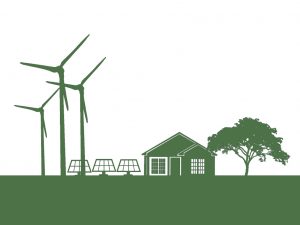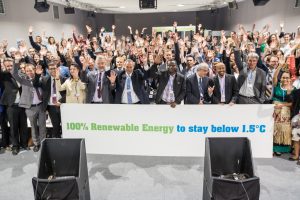That Nigeria is not a big-time solar power generator – powering her homes, offices and small to medium scale industries, with electricity from the sun she lavishly enjoys every day of the year is laughable and hard to believe.
In our world of today, Munich, the sunniest city in the cool-summer humid continental Germany gets an average of 1709 (4.6 hours per day) of sun hours every year, yet Germany generates circa 6.5 per cent of its electricity from the sun, while Nigeria with its reported average of 12 hours per day of sunlight has yet to add a watt of solar power in its public electricity grid.
It is often teased that the lack of sun is part of the reasons why Germans frequently head out to Greece for holiday. But from the meagre sun hours Germany gets, she has been able to keep her homes and offices energised, and even have extra to sell to her neighbours.
To confirm this strides, a recent report of the Fraunhofer Institute for Solar Energy Systems in Freiburg, stated that the fraction of PV and total RE contribution in Germany’s gross electricity consumption stood at circa 6.5 per cent and 32.3 per cent respectively.
On sunny weekdays, the report said, PV power can cover 35 per cent of the momentary electricity demand in Germany, while on weekends and holidays the coverage rate of PV can reach 50 per cent. It explained that at the end of 2016, the total nominal PV power installed in Germany was circa 41GW, distributed over 1.5 million power plants.
To say that this is not a shame to Nigeria whose over 80 million people do not have electricity to power their homes, and those connected to the grid do not always have enough to use, would be to play down the impacts of sharing a miserable 3500mw of fossil fuel generated electricity to millions of homes and offices in Africa’s biggest economy.
It was Mr. Suleiman Yusuf, the CEO of Nigeria’s renewable energy firm, Blue Camel Energy who aptly captured Nigeria’s pitiful electricity condition when he spoke shortly after picking up his award as one of West Africa’s leading young entrepreneurs from the CNBC in October 2016.
Yusuf said, “while the government is doing power points, we are doing power projects,” to drive home the flippant attitude of government to energy sufficiency in Nigeria.
In referring to this unwholesome attitude of the government and how it deters investors from competitively investing to generate and supply electricity to homes and offices in Nigeria using her existing power reform law which allows for competitive business models in the sector, Yusuf also gave the government an ear-splitting blow on its laid-back adoption of renewable energy as a new and veritable option out of the country’s energy poverty.
He simply inferred in his analogy, and which OGN agrees with, that the government was only a ‘loud talker and of course true to type.
We are of the view that Nigeria can do more if 1.5 million photovoltaic systems ranging from small rooftop systems to large solar parks, with a total capacity of 41GW (41,000mw) can be installed in Germany to give her enough electricity.
With her enormous daylight sun hours, we dare to ask: what are the excuses, and how good are they as to stop Nigeria from generating quantum solar electricity? We strongly believe that the absence of foresight and competence to recognise the place of RE as competitive energy sources could keep Nigeria in the energy poverty matrix for a long time.





